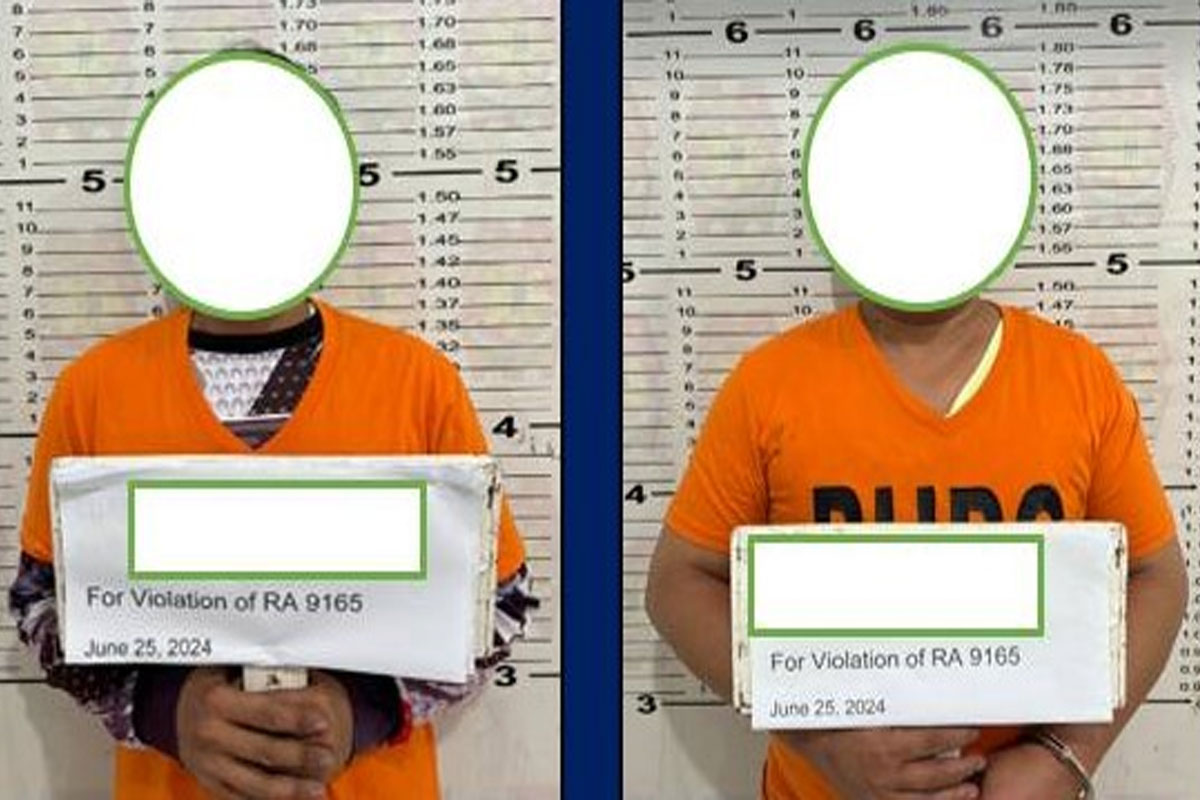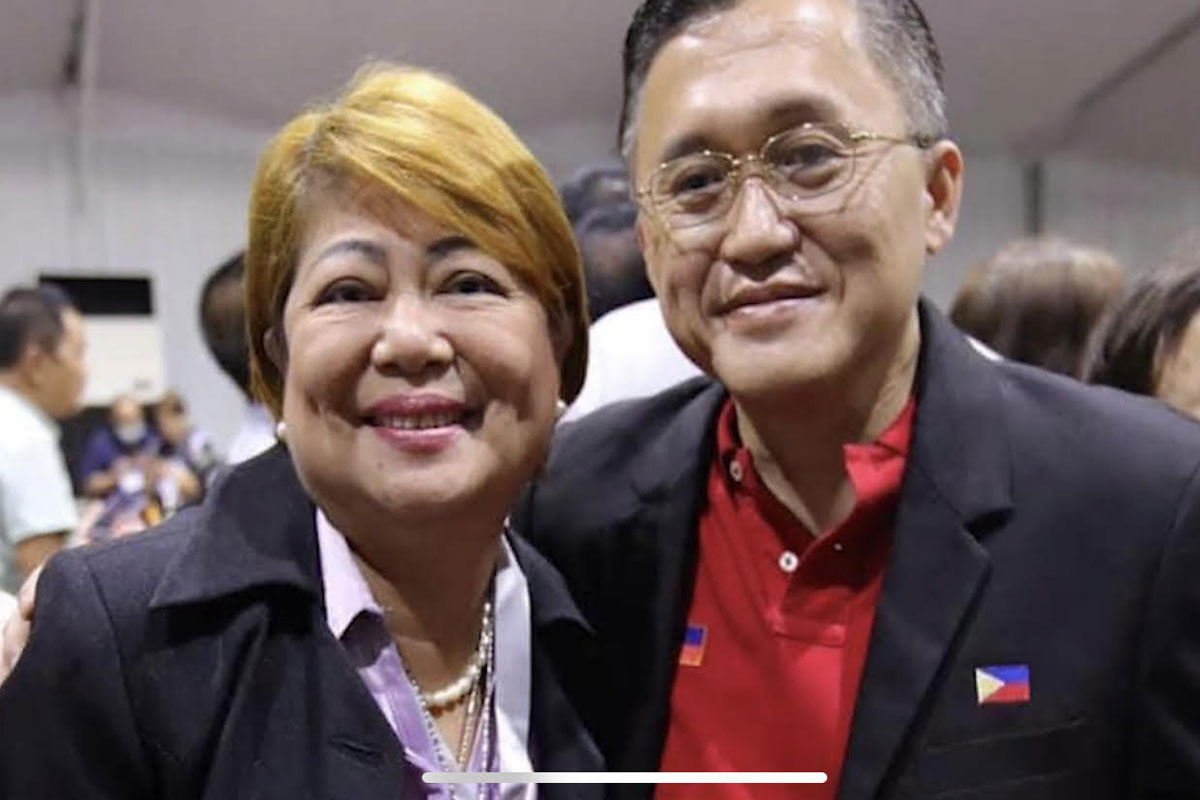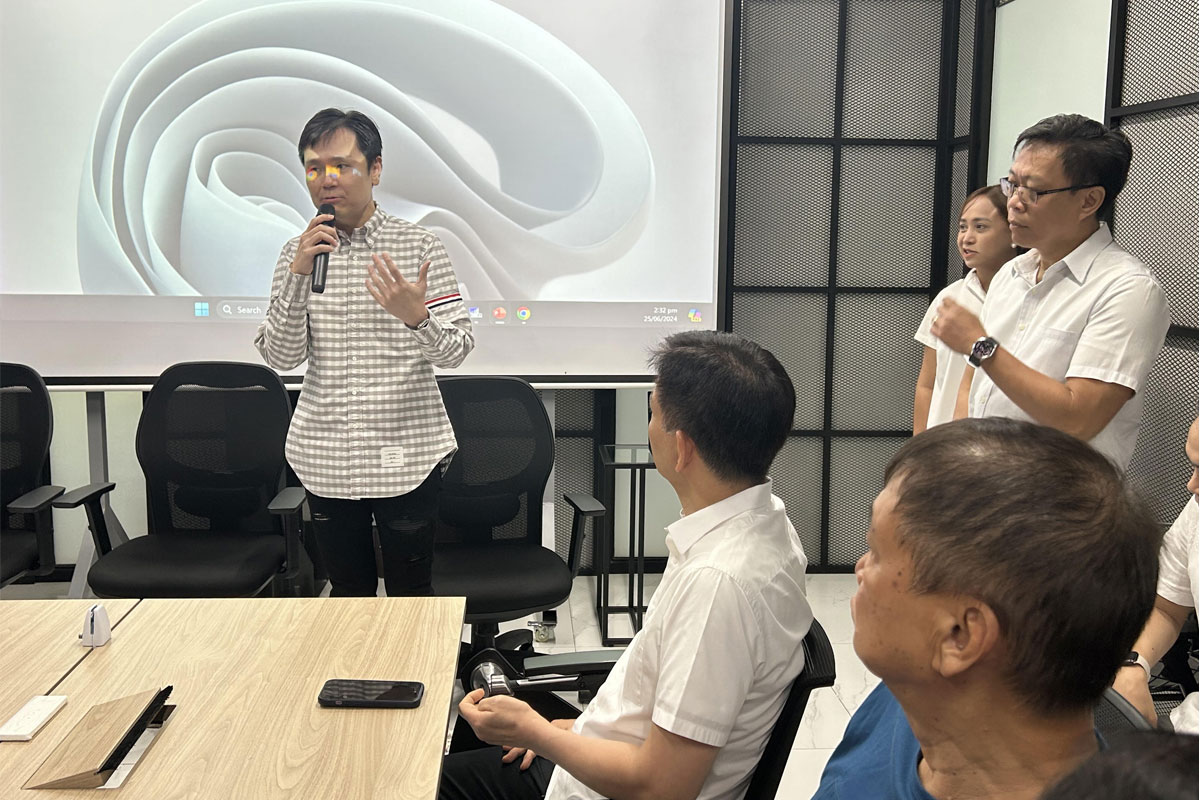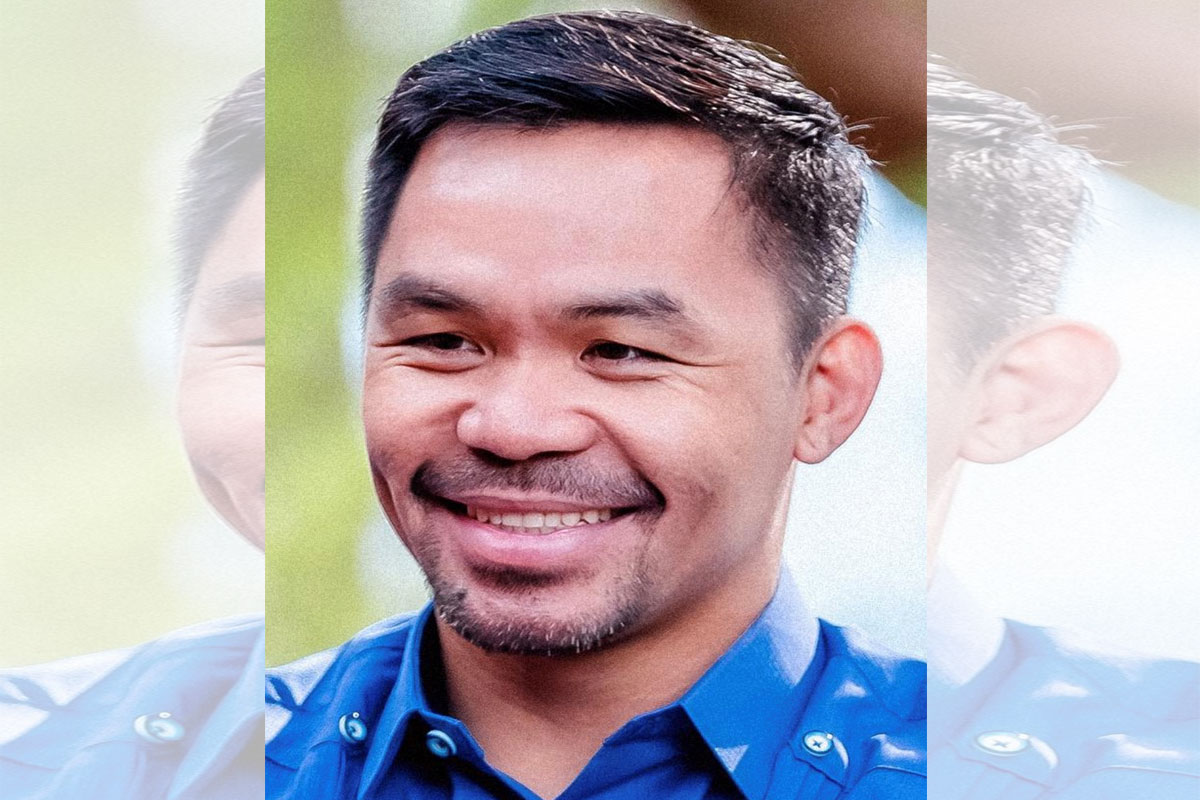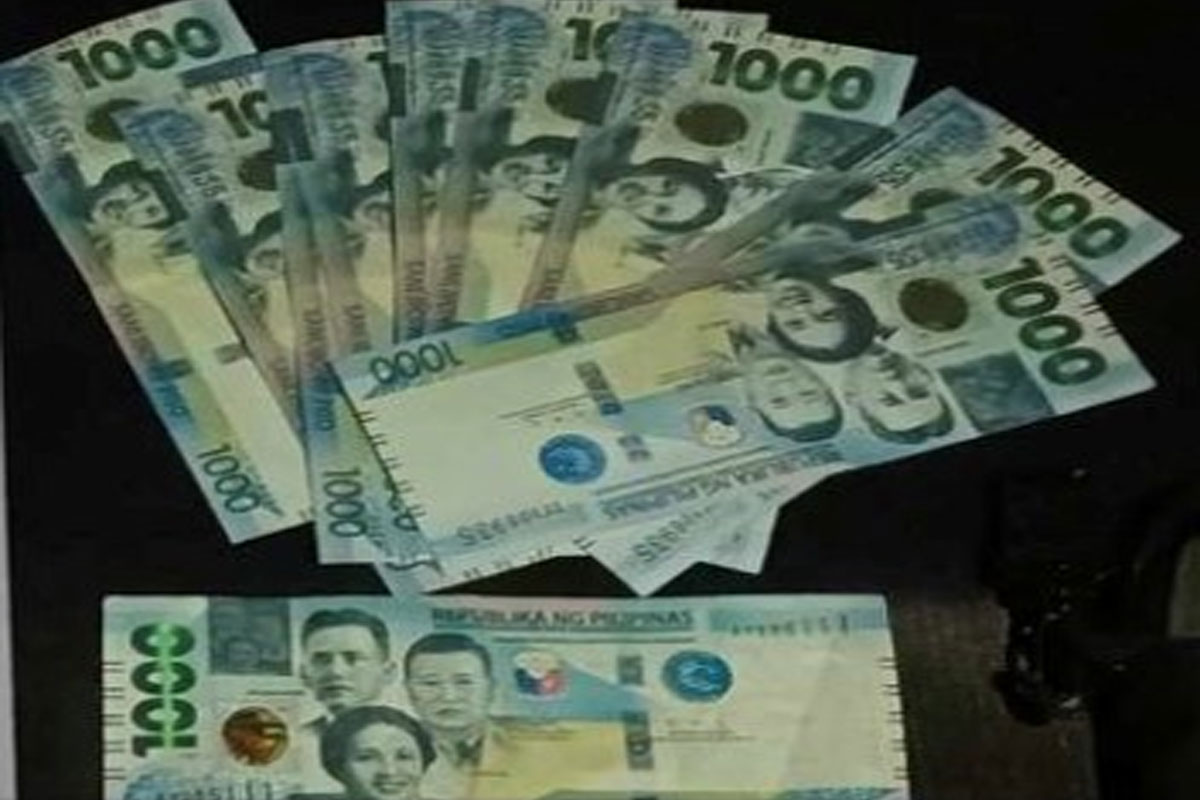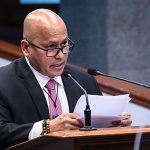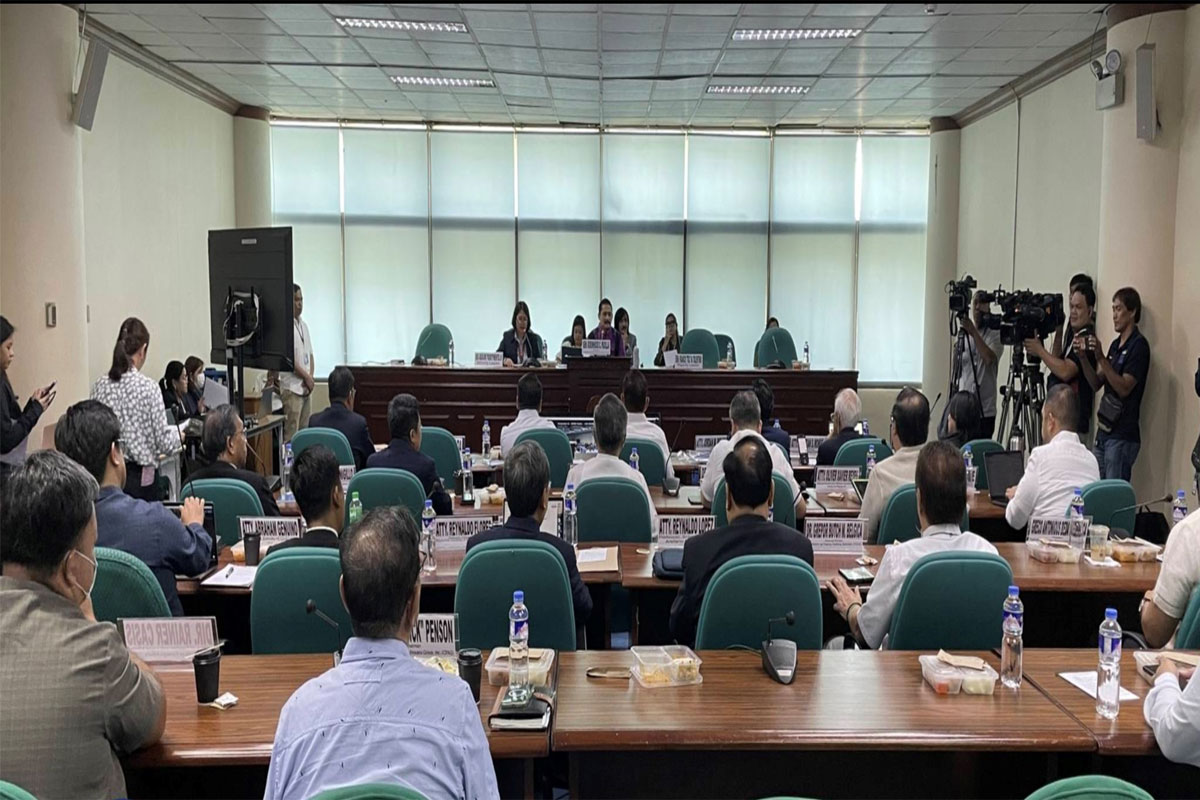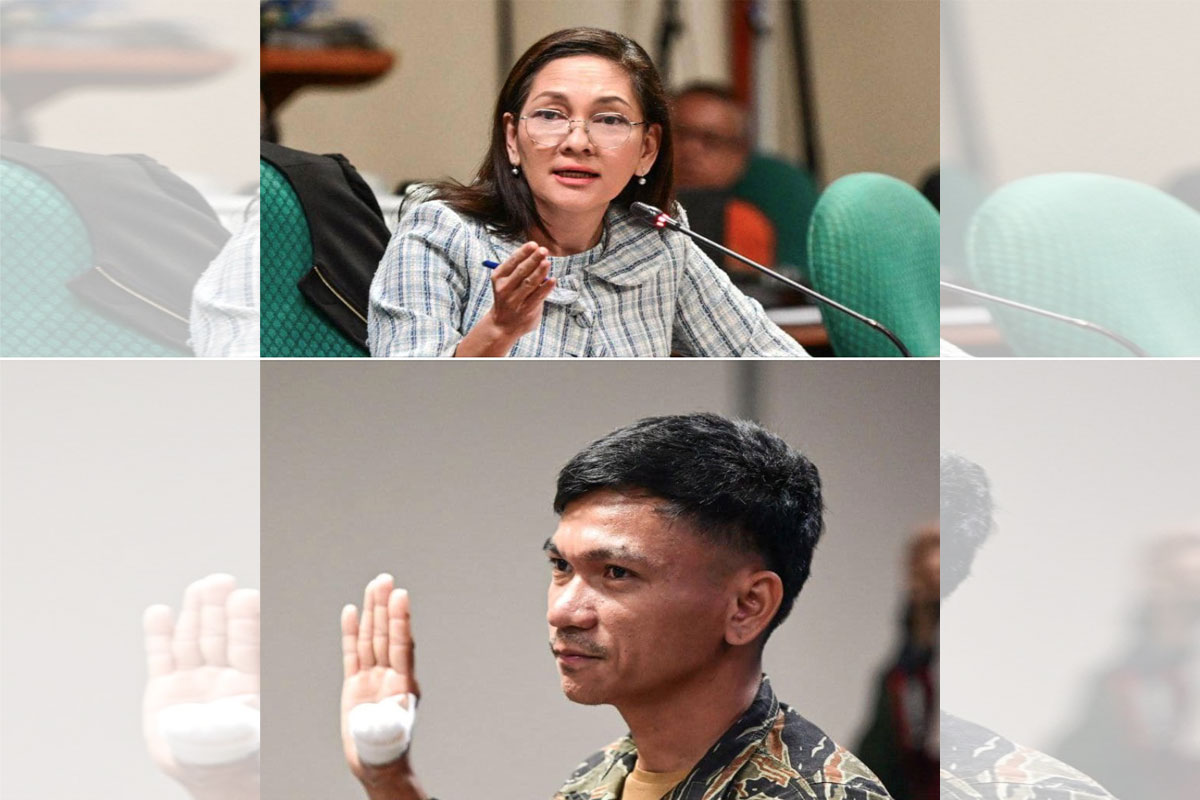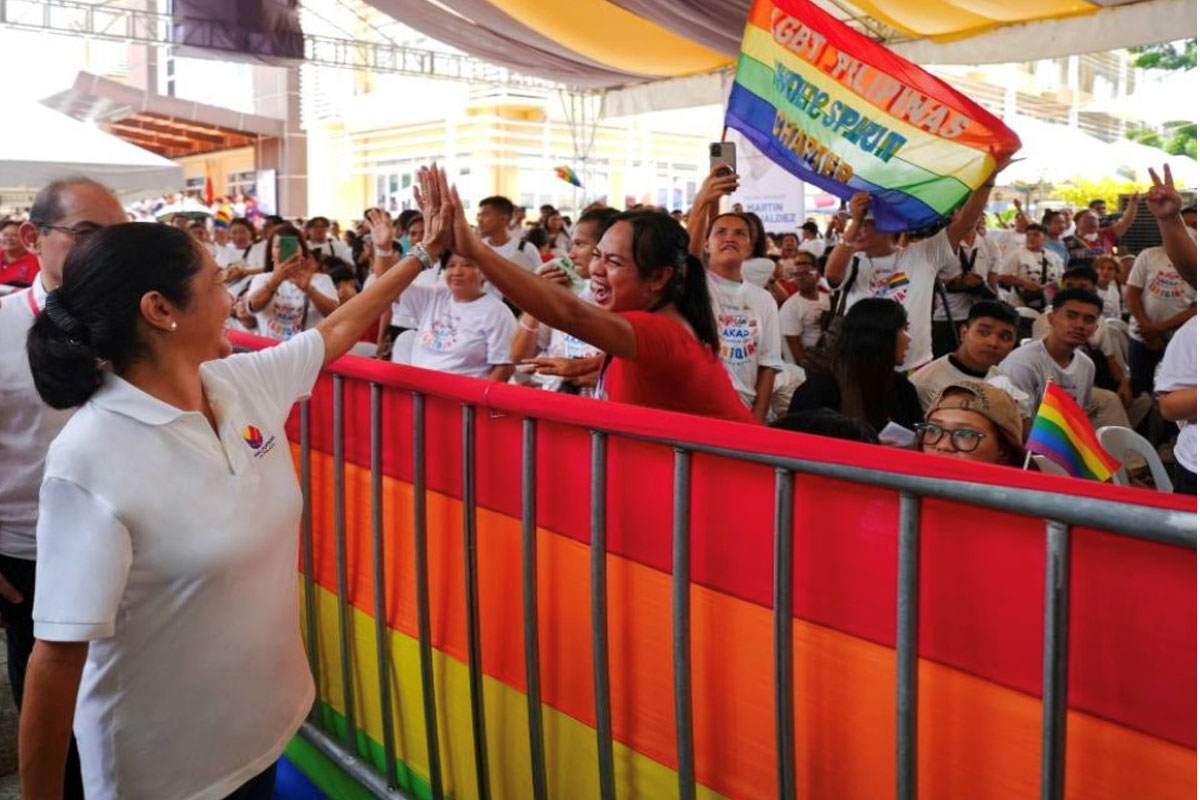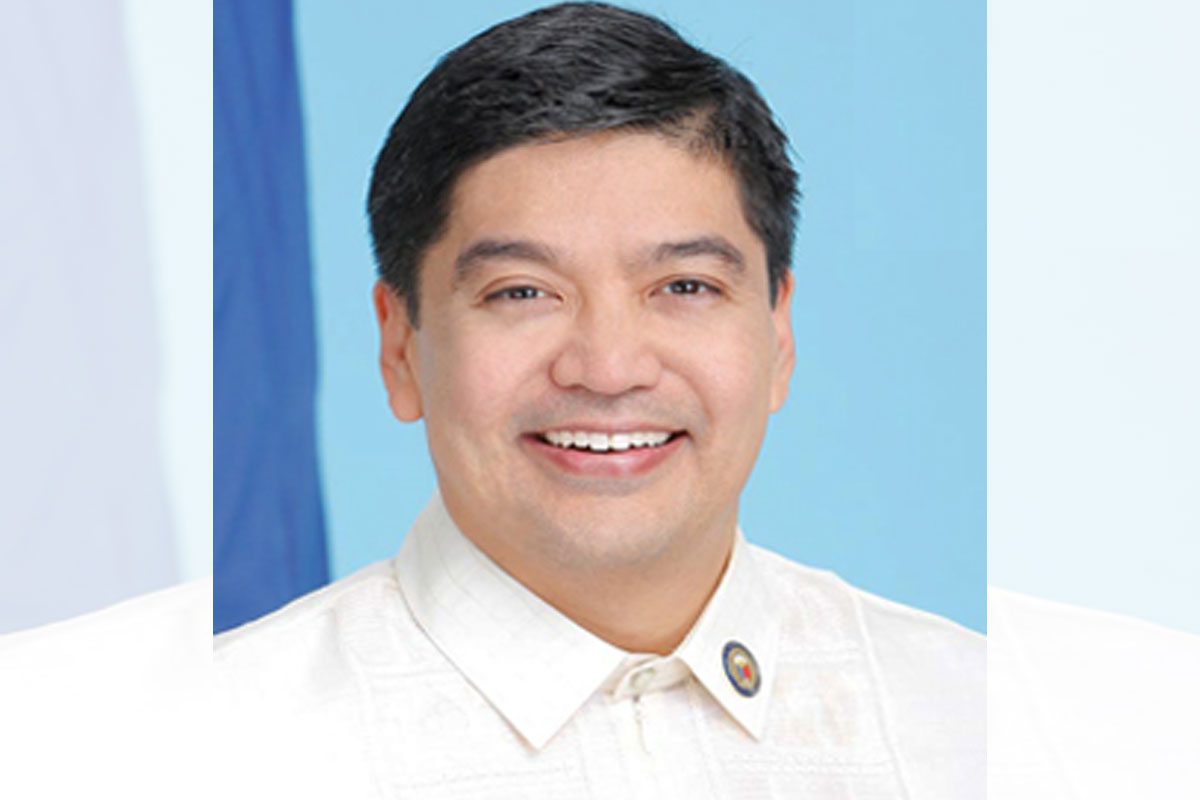
LRay hails extension of SIM registration deadline
WITH the Department of Information and Communications Technology (DICT)’s extension of the deadline for the law-mandated signup of Subscriber Identity Module (SIM) numbers, Camarines Sur Representative LRay Villafuerte has said the government has prudently avoided shutting out from digital and financial inclusion the legion of Filipinos who legitimately own possibly most of the 100 million-plus still-unregistered SIMs at this point.
“A non-extension of the registration period will have led to the disenfranchisement come Wednesday (April 26) of the legion of legit SIM owners who had failed to sign up, thereby dealing a severe blow to the Marcos administration’s efforts to fast-track our country’s digital transformation,” said Villafuerte.
“Hence, we welcome this decision to extend the registration deadline by 90 days as this 3-month grace period would give the DICT, NTC (National Telecommunications Commission), and PTEs (public telecommunications entities) time to further intensify their list-up drives from hereon and for the government to fix hitches such as stringent identification requirements, weak or no connectivity and other digital challenges believed behind the low registry turnout,” he said.
Villafuerte has co-authored Republic Act (RA) No. 11934 on the mandatory registration of SIM numbers between Dec. 27, 2022 and April 26, 2023, as the linchpin of government efforts to snuff out text scams, identity theft, and other cellular phones (cellphone)-based cybercrimes.
Justice Secretary Jesus Crispin Remulla announced on Tuesday that the extension of the registration process was approved during a Cabinet sectoral meeting earlier that day that was presided over by President Ferdinand “Bongbong” R. Marcos, Jr.
After Holy Week, Villafuerte backed the separate appeals of PTEs for the government to stretch the registration period amid the low turnout of registrants.
As of April 23, or three days left before the deadline, the NTC website reported that 82.84 million SIM owners, or 49.31%, had signed up.
Of the 82.84 million registrants, 39.94 million signed up with Smart Communications Inc. as of last week; another 37.09 million with Globe Telecom Inc.; and 5.79 million more with DITO Telecommunity Corp.
“While we recognize the government’s view that shady characters whose SIMs were the tools in their cybercrimes obviously have neither the desire nor intent to actually register their numbers used in scams and other nefarious activities, we must also consider the position of PTEs pushing a deadline extension that legit SIM owners need to be given more time to register their SIMs and avoid disenfranchisement,” Villafuerte said.
He noted that “In separately appealing for an extension, the three PTEs – Smart, Globe and DITO – told the DICT and NTC that many legitimate SIM holders have possibly failed to register their SIMs over the four-month signup period because of their lack of the required ID (identification) cards for them to list up or because of digital challenges such as the poor connectivity or no Internet at all, especially in what the PTEs have called the ‘missionary’ or faraway places across the country.”
Hence, he said, the newly-announced extension would let the DICT and NTC address such registration hitches to ensure a much bigger, more successful turnout of registrants, including allowing prepaid SIM holders to just present alternative identification cards like their school or office IDs to their PTEs as a requisite to sign up during the 3-month grace period.
Trade Secretary Alfredo Pascual also backed the extension, pointing out that, “Digital payments are what we need to happen to further promote and develop our MSMEs (micro, small and medium enterprises) because that’s how they can facilitate accessing the market and being able to sell online.”
“It’s good that the DICT exercised prudence in eventually reversing its previous position to keep the April 26 deadline to allow more SIM holders to register, given that the Department itself pointed out that a bigger registry turnout would better provide our law enforcers with the necessary tools to crack down hard on nefarious groups that have used their SIMs in their cybercrimes,” Villafuerte said.
Had the government stuck to the original April 26 deadline, Villafuerte said this would have unfortunately shut out legit holders of unregistered SIM cards from digital and financial inclusion as their SIMs will have been deactivated by Thursday (April 27).
He said the owners of unregistered SIMs to be automatically deactivated by the PTEs would immediately be disenfranchised as they would no longer be able to receive one-time passwords (OTPs) that are needed for them to continue accessing their mobile wallets or banking apps.
They would be locked out, too, of essential online services previously linked to their mobile numbers, including their social media (socmed) apps like Facebook or TikTok, messaging apps like Viber or Messenger, delivery apps like GrabFood or Foodpanda, and shopping apps like Shopee or Lazada.
Moreover, he said, they would no longer have access to critical government information like emergency announcements about incoming typhoons or storm surges.
As pointed out by the PTEs earlier seeking a deadline extension, he said that “SIM holders who will have failed to register by April 26 because of the lack of the required IDs or connectivity issues in missionary sites are at high risk of marginalization and digital and financial exclusion as their SIMs might be their only way of accessing online information and financial services.”
“An extension alone of the registration period will let the government integrate into the digital space the legit owners from among the holders of over 100 million unregistered SIMs,” Villafuerte said. “The failure of these legitimate SIM holders to sign up will thus deal a severe blow to the Marcos administration’s commitment to accelerate our country’s digital switch.”
Villafuerte pointed out that an extension of the list-up deadline was authorized under RA 11934 for as long as 120 days or four months under this 2022 law that is meant to beef up the global fight against cybercrime.
He had backed the extension appeal of the three PTEs, which all said that one stumbling block to maximizing the list-up was the lack by many subscribers of the needed identification requirement, such as the Philippine Identification System (PhilSys) ID, Driver’s license or passport, for them to list up their SIMs.
Given the lack of IDs and digital challenges, Globe said in an April 11 statement to the media, “We appeal to the government to extend the SIM registration process to give our customers more time to get their required government IDs and input the required information on our site.”
Villafuerte also supported the PTEs’ appeal for easing the subscribers’ identification rule and agreed that the DICT and NTC accept alternative identification cards of would-be registrants, such as their company or school IDs.
Villafuerte explained that Section 4 of RA 11934 requires the registration of all SIMs by their end-users as a pre-requisite to the activation or continued use of these numbers.
Section 4 states, he said, that: “All existing SIMs subscribers shall register the same with their respective PTEs within one hundred eighty (180) days from the effectivity of this Act. The DICT may extend (the) registration for a period not exceeding one hundred twenty (120) days.”
Villafuerte said the government should exert its best efforts to have as many still-unregistered SIM holders as possible register their numbers, considering that a highly successful registration drive would give a tremendous boost to the government campaign to lick cybercrime, notably cellphone-based fraud like text scams and identity theft leading to unauthorized online payments and bank withdrawals.
“A highly successful registration of SIMs is much desired, as such will make it easier for the authorities or PTEs to trace persons behind text scams and hold them accountable for breach of privacy along with cellphone-based fraud and other punishable offenses they have been able to perpetrate by using unknown or unregistered cellphone numbers,” Villafuerte said.
RA 11934, which Mr. Marcos signed into law last Oct. 10, is one of the 32 priority measures that the President last year endorsed to Congress for urgent action.
Twenty-three (23) of these priority measures had already been passed by the House, of which 14 had been co-authored by Villafuerte.
Villafuerte had authored with Camarines Sur Reps. Miguel Luis Villafuerte and Tsuyoshi Anthony Horibata and the Bicol Saro Party-list House Bill (HB) No. 2213, one of the bills that were consolidated into the House-approved version of the final congressional measure that President Marcos eventually signed as RA 11934.
That the required signup would indeed be an effective deterrent to cellphone-based cyber crimes is borne out, said Villafuerte, by a report by NTC Commissioner Ella Blanca Lopez that from a monthly average of 51,874 cyberfraud complaints or about 1,500 per day before the enactment of RA 11934, the complaints went down to 8,700 per month since the start of the registration.
Villafuerte noted that President Marcos himself said earlier that text complaints received by the NTC had fallen by 93.3% since the implementation of RA 11934 last December.
The President said on Twitter that, “93.3% ang ibinaba ng mga reklamong natatanggap ng NTC simula ng ating ipatupad ang SIM Card Registration Act!”
“Unti-unti nang nagiging mas ligtas ang ating digital space kaya naman patuloy naming inaanyayahan ang lahat na mag-register na para sa panatag na pagnenegosyo, pagtatrabaho, at pamumuhay!” he added.



